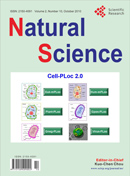 The other day we brought you the story (well, not quite a STORY) of a group of researchers who had to retract a paper in the Journal of Computational Chemistry because of a “computation error.” We still don’t know what that means.
The other day we brought you the story (well, not quite a STORY) of a group of researchers who had to retract a paper in the Journal of Computational Chemistry because of a “computation error.” We still don’t know what that means.
That was fresh in our minds when we came across the following retraction notice in the Journal of Obstetrics and Gynaecology Research: Continue reading Premature delivery? Paper on rapid assay for ruptured placenta pulled for “mishandling” of tests







